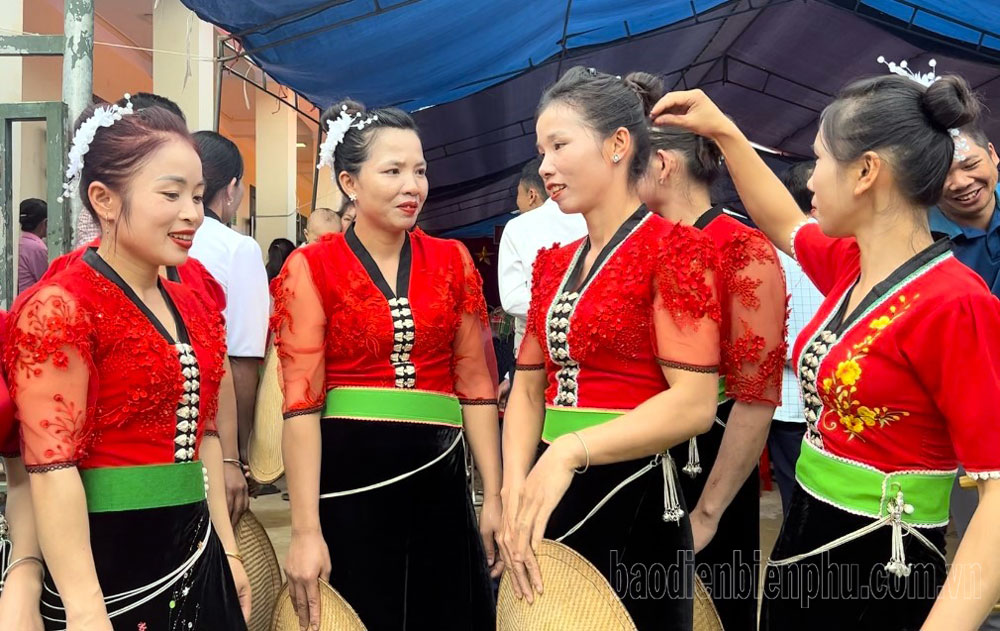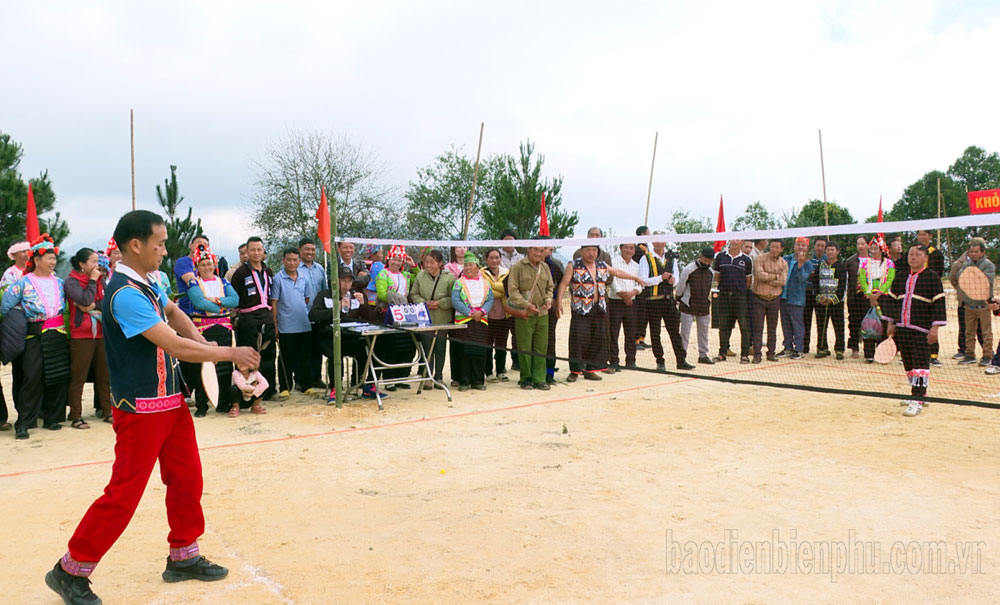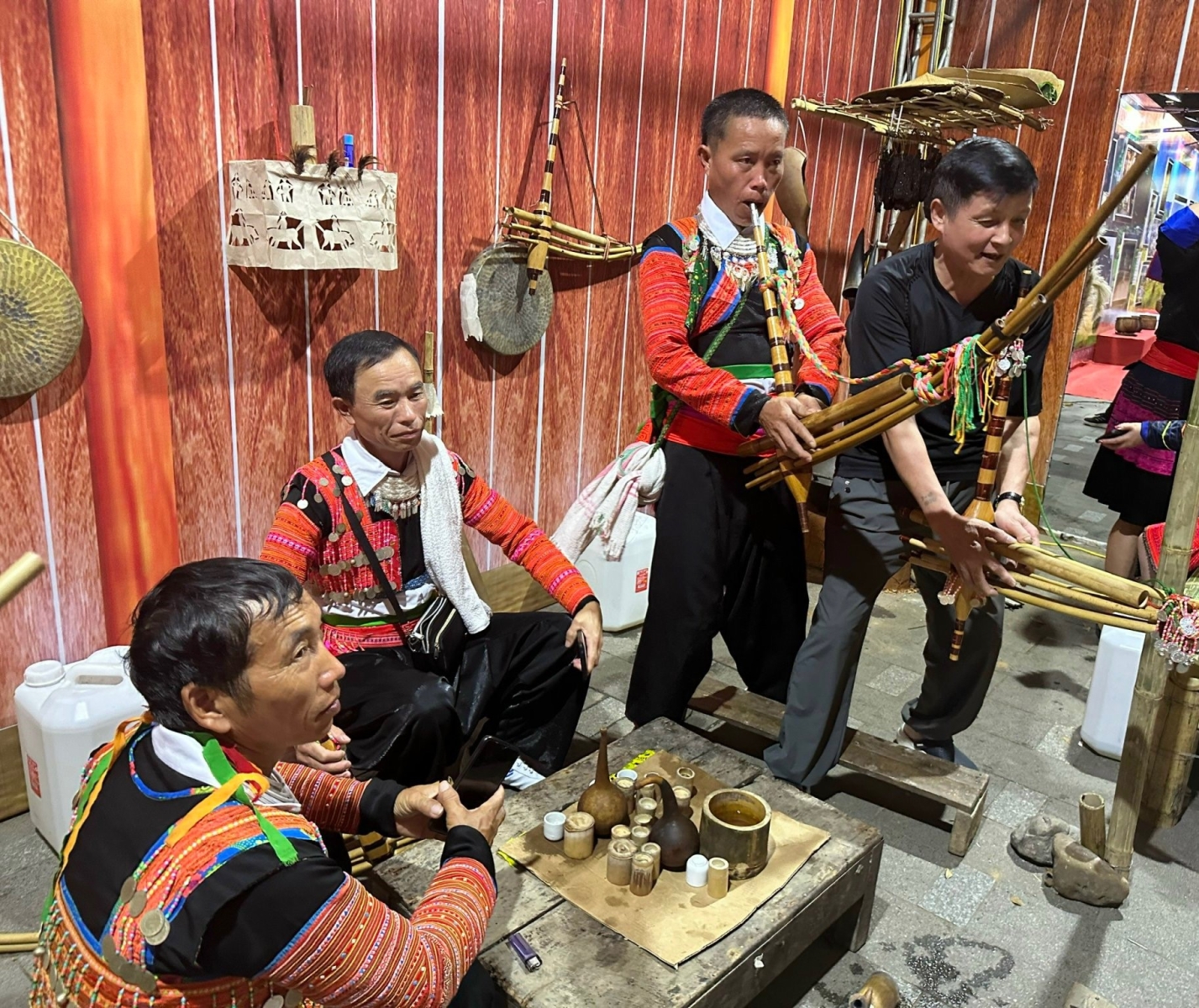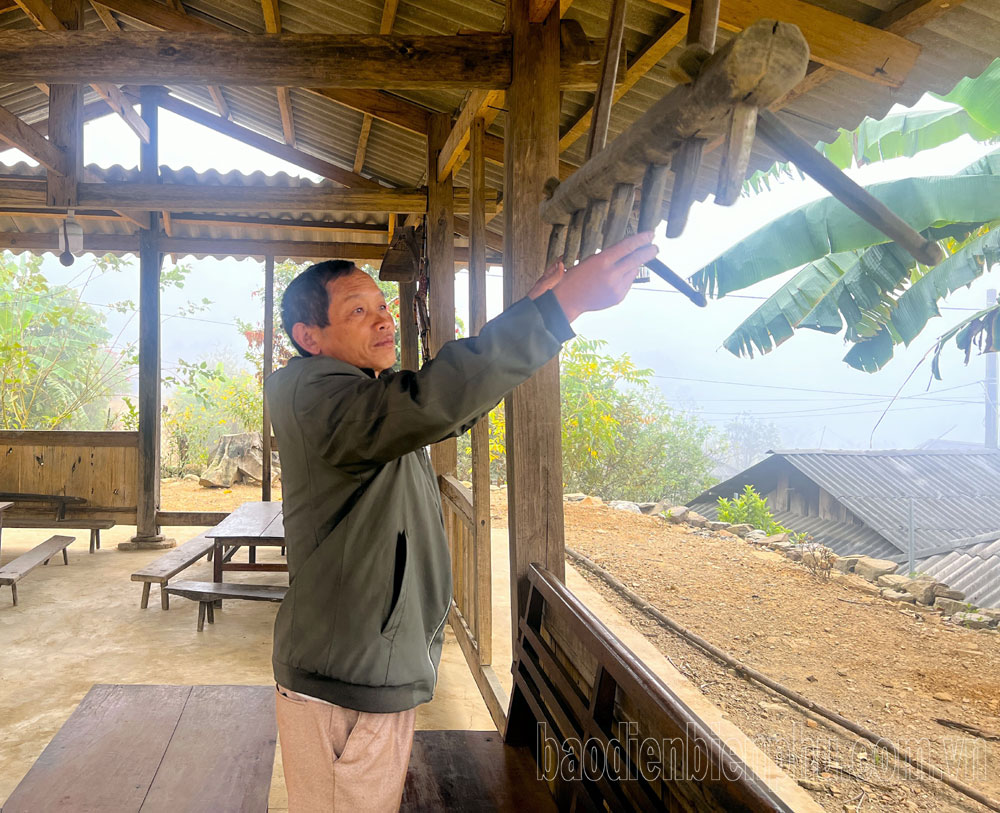With 19 ethnic groups, each possessing a distinct cultural heritage, Điện Biên is rich in resources to craft a wide array of tourism experiences. These not only captivate visitors but also offer authentic, immersive encounters that highlight the province’s vibrant cultural identity.

Each custom and tradition of the ethnic groups contributes to Điện Biên’s rich cultural identity.
Nestled along the picturesque Pha Đin Pass, Lồng Village in Tỏa Tình Commune, Tuần Giáo District, exemplifies the successful integration of tourism development with cultural preservation.
Home to Mông ethnic residents, the village is celebrated for its cool climate and breathtaking landscapes. Recognised by the district for its tourism potential, Lồng Village has embraced its transformation into a cultural tourism destination, inspiring residents to enhance their community and welcome visitors.
According to Mùa A Sùng, the village head, all 109 households collaborated to construct a 500-metre road leading to popular attractions such as sunrise and cloud-watching spots, terraced fields, Cọp Cave, and Dragon’s Nose Rock.
Mùa A Dề’s family is among the first to establish homestays in the village, converting their home into accommodation with four guestrooms, twelve beds, and modern amenities tailored to tourist needs.
In addition, the village has revitalised its traditional cultural activities, forming a performance troupe and a Mông panpipe dance team. Residents have also been encouraged to wear traditional clothing during festivals and special events.
Adding to the excitement, early December saw Lồng Village host experimental competitions showcasing traditional ethnic sports and folk games of the Mông people. Over 200 athletes from seven villages in Tỏa Tình Commune participated, celebrating the rich cultural heritage of the area.

Athletes competing in a traditional sport.
These competitions are part of Project No. 6 under the National Target Programme for Socio-Economic Development in Ethnic Minority and Mountainous Areas. The programme seeks to integrate cultural preservation with tourism development.
Organisers have provided tools to preserve traditional sports and folk games, ensuring they remain a vibrant part of the local community while also appealing to visiting tourists.
Meanwhile, Tủa Chùa District is promoting its own unique tourism offerings. Renowned for landmarks such as the Tả Phìn Stone Plateau, terraced fields, and spring festivals, the district also boasts a lively weekly night market.
Held every Saturday evening, the market has become a cultural highlight, showcasing local ethnic traditions, cuisine, and artisanal goods, making it a must-visit destination for tourists.

Tourists experiencing the Mông ethnic group’s khèn (panpipe) dance.
Nguyễn Văn Mạnh, Director of Tủa Chùa’s Centre for Culture, Broadcasting, and Television, highlighted that the market features cultural performances organised by local schools, communes, and towns.
At the heart of the market is a food court offering regional specialities such as thắng cố (horse meat soup), mountain goat dishes, and fragrant maize wine, which draw in both locals and tourists.
Since its inception, the market has become a signature attraction in Tủa Chùa’s tourism landscape.
Điện Biên’s cultural heritage is further enriched by UNESCO-recognised intangible cultural treasures, including then singing and the xòe dance of the Thái people, alongside 14 nationally recognised intangible cultural heritage sites.
Traditional festivals, such as the Ban Flower Festival, the Bản Phủ Festival, and ethnic-specific celebrations, have been revitalised and are now held annually, providing fertile ground for tourism development.

A resident in Tìa Ló Village, Noong U Commune, Điện Biên Đông District, renovates his home into a homestay to welcome tourists.
In 2024, Điện Biên welcomed approximately 1.85 million visitors, exceeding its annual target by an extraordinary 543.2 per cent. Tourism revenue reached an estimated VNĐ3.3 trillion (US$137.5 million), surpassing projections by 50 per cent.
These figures underscore the province’s success in integrating cultural heritage into its tourism strategy, creating unique experiences that celebrate the cuisine and traditions of its ethnic communities.
While all ethnic groups contribute to Điện Biên’s rich cultural tapestry, preservation efforts currently prioritise only a select few. Many other communities’ cultural assets remain under-documented, and actionable plans for their preservation and promotion are lacking.
Some areas still face challenges in offering tourism products that authentically reflect their indigenous ethnic identities, limiting their appeal to visitors.
To fully harness the potential of traditional cultural values in tourism, collaboration among local authorities, relevant agencies, and the community is essential.
Only through proactive preservation and responsible management can Điện Biên’s cultural heritage be transformed into compelling tourism products that attract visitors from around the globe.





.jpg)


.jpg)
.jpg)
.jpg)
.jpg)
.jpg)
.jpg)
.jpg)




.jpg)
.jpg)
You have 500/500 characters left
Please enter 5 or more characters!!!